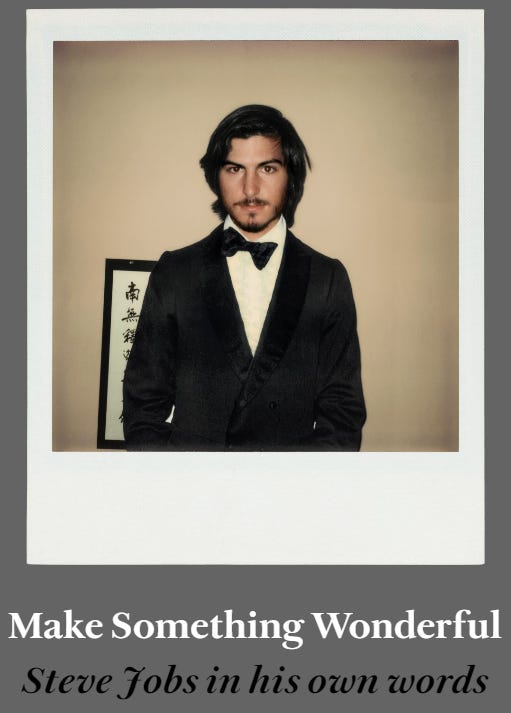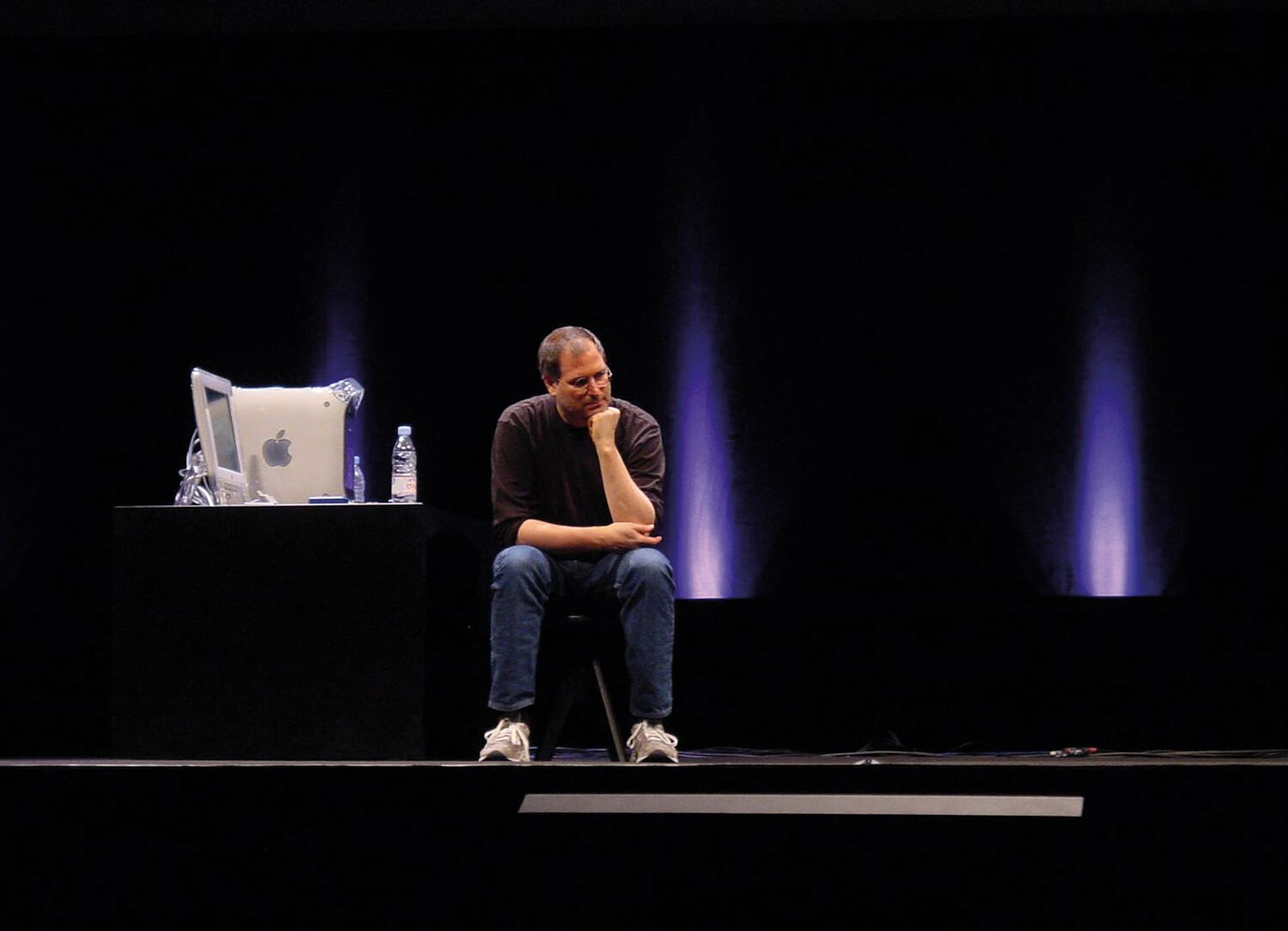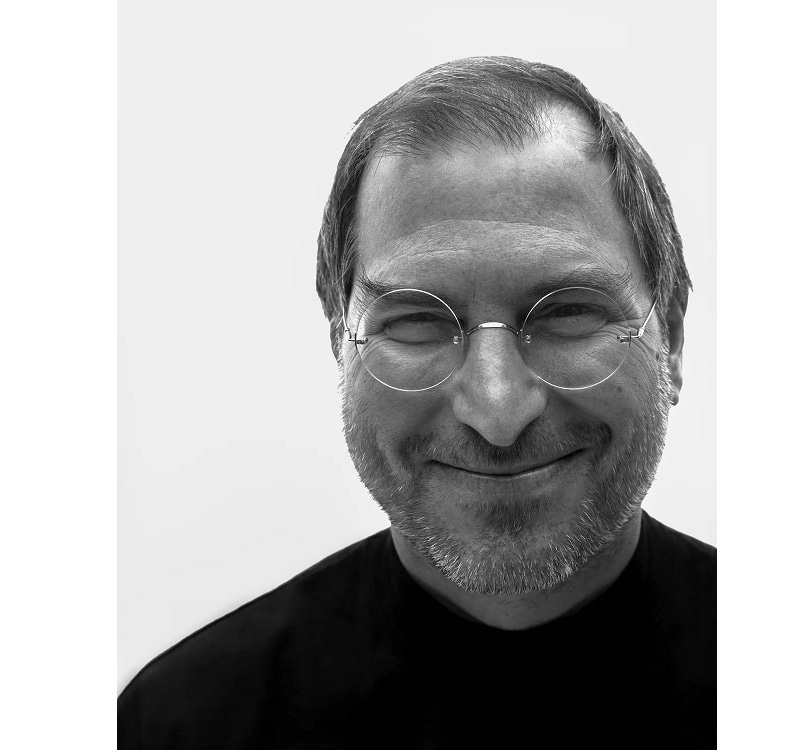📚 Make Something Wonderful: Steve Jobs in his own words
“When you start with nothing, you can shoot for the moon. When you get something, it’s easy to go into cover-your-ass mode. We try to realize the amazing time we’re in and not go into that mode.”
Hi everyone,
The Steve Jobs Archive released a free book with a collection of Jobs’ interviews and speeches this week (thanks to David Senra for highlighting, looking forward to his take on Founders soon). The nuances of running Apple, Next, and Pixar were not as interesting to me, but the book contains many wonderful quotes about life, work, and creativity. I will share a few favorites below.
One of Steve’s comments immediately brought me back to a recent piece on the importance of doing what feels important. On the question of how to motivate people Jobs mused that “it’s the work that binds.”
That’s why it’s so important to pick very important things to do. It’s very hard to get people motivated to make a breakfast cereal. It takes something that’s worth doing.
(Pro tip for the book: you can scroll through chapters directly via the blue progress bar on the right hand side.)
Thank you for reading,
Frederik
Steve’s favorite quote.
Don’t be a career. Be a rainbow.
Remember your intuitions about your life.
Be a creative person.
Invest the extra time to make your work great.
“I always tried to coach myself on not being afraid to fail.”
Motivation out of meaning: “It’s the work that binds.”
The people crazy enough to think they can change the world are the ones that will.
Find a way to put something back into the pool of human experience.
Have fun!
Steve’s favorite quote.
“We are what we repeatedly do. Excellence, then, is not an act, but a habit.” – Aristotle
I need this reminder every day. How I invest my time today is how I spend my life.
Don’t be a career. Be a rainbow.
Speech at Palo Alto High School graduation in June 1996.
Don’t be a career. The enemy of most dreams and intuitions, and one of the most dangerous and stifling concepts ever invented by humans, is the “Career.” A career is a concept for how one is supposed to progress through stages during the training for and practicing of your working life.
There are some big problems here. First and foremost is the notion that your work is different and separate from the rest of your life. If you are passionate about your life and your work, this can’t be so. They will become more or less one. This is a much better way to live one’s life.
[The] risk factor quotient goes down as you encounter the real world. Many [people] find what they believe to be safe harbors (lawyers and accountants), only to wake up ten or fifteen years later and discover the price they paid.
Make your avocation your vocation. Make what you love your work.
The journey is the reward. People think that you’ve made it when you’ve gotten to the end of the rainbow and got the pot of gold. But they’re wrong. The reward is in the crossing the rainbow. That’s easy for me to say—I got the pot of gold (literally). But if you get to the pot of gold, you already know that that’s not the reward, and you go looking for another rainbow to cross.
Think of your life as a rainbow arcing across the horizon of this world. You appear, have a chance to blaze in the sky, then you disappear.
To know my arc will fall makes me want to blaze while I am in the sky. Not for others, but for myself, for the trail I know I am leaving.
Remember your intuitions about your life.
Speech at Palo Alto High School graduation in June 1996.
Be aware of the world’s magical, mystical, and artistic sides. The most important things in life are not the goal-oriented, materialistic things that everyone and everything tries to convince you to strive for. Most of you know that deep inside. Think back on this spring—the last three or four months—when you are winding down high school, know where you are going next year, and begin to really have strong intuitions about the world you will encounter. Maybe you see an image of yourself in Paris, sculpting in an artist’s studio as the setting sun shines in the paned windows. Maybe you’re in India, running a hospital for poor children, and you hear the distant clatter of the outdoor marketplace in the early morning. Maybe you see yourself in a recording studio laying down a track for your album. Maybe you see yourself alone in a rented room at 4:30 in the morning being the only person alive to understand a new law of physics you just figured out.
Whatever it may be, I bet many of you have had some of these intuitive feelings about what you could do with your lives. These feelings are very real, and if nurtured can blossom into something wonderful and magical.
A good way to remember these kinds of intuitive feelings is to walk alone near sunset—and spend a lot of time looking at the sky in general. We are never taught to listen to our intuitions, to develop and nurture our intuitions. But if you do pay attention to these subtle insights, you can make them come true.
But: “People will come at you with reasons why you shouldn’t do these things…”
Be a creative person.
Speech at Palo Alto High School graduation in June 1996.
If you don’t have any of these feelings, called dreams, then you’re in trouble. Before you “spend” four or more years of your life going in a direction your heart may or may not want you to go, you need to recapture them.
Be a creative person. Creativity equals connecting previously unrelated experiences and insights that others don’t see.
You have to have them to connect them. Creative people feel guilty that they are simply relaying what they “see.” How do you get a more diverse set of experiences? Not by traveling the same path as everyone else …
Invest the extra time to make your work great.
Interview with Michael Moritz, a reporter who would soon switch careers and become a venture capitalist, at Steve’s office at Apple in May 1984.
Things get more refined as you make mistakes. I’ve had a chance to make a lot of mistakes. Your aesthetics get better as you make mistakes. But the real big thing is: if you’re going to make something, it doesn’t take any more energy—and rarely does it take more money—to make it really great. All it takes is a little more time. Not that much more. And a willingness to do so, a willingness to persevere until it’s really great.
But aesthetics? I think aesthetics are a lot like singing. Joanie [Baez] has a beautiful voice, but the reason her voice is beautiful isn’t because her voice is just beautiful. It’s because she has an incredibly good ear. She can listen to somebody speak for thirty seconds and imitate their voice almost perfectly. Her ear is superb. And I think, in the same way, good aesthetics result from just your eye. An instinct of what you see, not so much what you do.
“I always tried to coach myself on not being afraid to fail.”
1996 interview with Fresh Air radio host Terry Gross.
G: Do you think that when you were ousted from Apple that people kind of wrote you off? I mean, here you are with these big successes now.
SJ: Oh golly, I don’t know. I’m sure that a lot of people did, and that was fine. It was a very painful time, as you might imagine.
TG: What, to be forced out of the company you created?
SJ: Oh, of course. That was a very painful time, but you just march forward, and you try to learn from it. One of the things I always tried to coach myself on was not being afraid to fail. When you have something that doesn’t work out, a lot of times, people’s reaction is to get very protective about never wanting to fall on their face again. I think that’s a big mistake, because you never achieve what you want without falling on your face a few times in the process of getting there. I’ve tried to not be afraid to fail, and, matter of fact, I’ve failed quite a bit since leaving Apple.
Motivation out of meaning. “It’s the work that binds.”
Interview for In the Company of Giants.
SJ: Part of the CEO’s job is to cajole and beg and plead and threaten at times—to do whatever is necessary to get people to see things in a bigger and more profound way than they have, and to do better work than they thought they could do.
When they do their best and you don’t think it’s enough, you tell them straight: “This isn’t good enough. I know you can do better. You need to do better. Now go do better.
You must play those cards carefully. You must be right a lot of the time because you’re messing with people’s lives. But that’s part of the job. In the end, it’s the environment you create, the coworkers, and the work that binds.
The Macintosh team, if you talk to most of them—a dozen years since we shipped the product—most will still say that working on the Mac was the most meaningful experience of their lives. If we’d never shipped a product they wouldn’t say that. If the product hadn’t been so good they wouldn’t say that. The Macintosh experience wasn’t just about going to camp with a bunch of fun people. It wasn’t just a motivational speaker. It was the product that everybody put their heart and soul into, and it was the product that expressed their deep appreciation, somehow, for the world to see.
So, in the end, it’s the work that binds. That’s why it’s so important to pick very important things to do because it’s very hard to get people motivated to make a breakfast cereal. It takes something that’s worth doing.
The people crazy enough to think they can change the world are the ones that will.
Speech to Apple Employees, September 23, 1997.
The question we asked was, “Who is Apple, and what is it that we stand for?”
And what we’re about isn’t making boxes for people to get their jobs done, although we do that well. We do that better than almost anybody, in some cases.
But Apple is about something more than that. Apple, at the core—its core value—is that we believe that people with passion can change the world for the better.
And that those people that are crazy enough to think that they can change the world are the ones that actually do.
Find a way to put something back into the pool of human experience.
International Design Conference in Aspen, 1983.
We [at Apple] feel that, for some crazy reason, we’re in the right place at the right time to put something back. And what I mean by that is, most of us didn’t make the clothes we’re wearing, and we didn’t cook or grow the food that we eat, and we’re speaking a language that was developed by other people, and we use a mathematics that was developed by other people. We are constantly taking.
And the ability to put something back into the pool of human experience is extremely neat. I think that everyone knows that in the next ten years we have the chance to really do that. And we [will] look back—and while we’re doing it, it’s pretty fun, too—we will look back and say, “God, we were a part of that!”
Have fun!
There’s always been this myth that really neat, fun people at home all of [a] sudden get very dull and boring and serious when they come to work, and it’s simply not true. If we can again inject that liberal-arts spirit into this very serious realm of business, I think it would be a worthwhile contribution.








Very interesting, especially since yesterday, I posted about my own attitude toward success and failure. It is quite similar.
https://edbrenegar.substack.com/p/circle-of-impact-quality-measures
Beautiful quotes from a very impressive man.